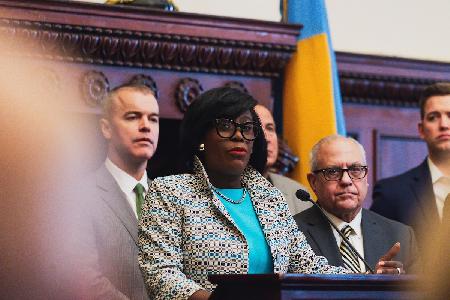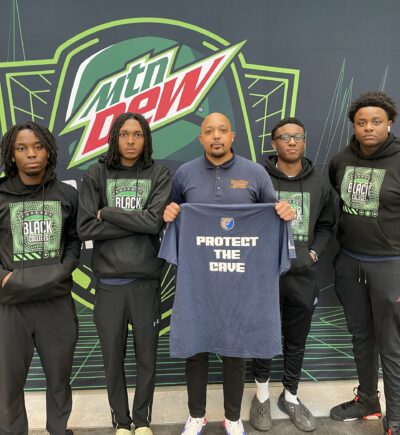For Zimbali Networks founder Cylton Collymore, the question of whether or not users need a digital central bank can be best answered by looking to the past.
“Your smartphone is a phone, it’s a computer, it’s a camera, it’s all these things, and you didn’t know you needed that until you actually started using it,” Collymore told Technical.ly. “Now you’re like: ‘Why did I have this before? It makes all the sense in the world.’ It’s the same thing with money.”
If you’ve ever looked to send money to someone outside the US (or even within the country’s borders), you know about such available options as wire transfer, MoneyGram and financial service companies like Western Union. But on the other end, it can be a little complicated, especially for those who are underbanked.
To help, he created Zimbali, a technology services provider, primarily designed for underserved communities and a global audience. The Maryland startup creates blockchain and Web3 products, particularly in financial services through a fintech platform known as ORO.
ORO, Collymore said, is designed to be a replacement for apps like Cashapp, Venmo and Paypal for Black and Latine communities. He said ORO aligns both a typical digital wallet for cash with a crypto wallet that allows users to spend or send money to anyone around the world. Within ORO, Zimbali is at work on a central bank digital currency that can be used anywhere, as well as a user wallet that lets primarily US-based users send money to anyone around the world. Both products are expected to launch by the end of the year.
It also added a feature called Quick Bank, which lets groups like small businesses or consultancies, families or even something like a Girl Scout troop quickly open a group account. However money enters the group account, the AI intermediary takes over and creates a smart contract for the group members which helps them with how to best spend the money. The feature will likely launch in January.
“Now we have accountability, we have insight,” Collymore said. “We know where the money went, everyone gets to see, and everyone gets a receipt. So you obtain fulfillment, transparency, trust, identification.”
Collymore said that he first got the idea when working in South Africa as a foreign service officer and realized there were few options for the community to raise or coordinate funds, despite being a fairly wealthy country. Now, the four-person company is based in Silver Spring, Maryland and began building its solutions in 2021. In the time since it’s also participated in the Techstars Equitech Accelerator in Baltimore and Towson University’s StarTUp Accelerator, among others.
“Techstars allowed us to adopt really great new family members who look out for us in every way,” Collymore said. “They tell us about new opportunities for funding, they tell us about programs, they tell us about the ability to become visible and give us inside scoops.”
Through Towson, the company received $10,000 to continue building. It also raised $450,00 of a $1.5 million round and plans to transition to a crowdfunding platform for the remaining funds.
Join the conversation!
Find news, events, jobs and people who share your interests on Technical.ly's open community Slack

Philly’s IT department fires long-tenured staff amid a high-level shakeup of priorities

RealLIST Connectors 2024: Meet 20 leaders spreading innovation throughout Pittsburgh

This Black gaming advocate has a mission to transform education through esports


